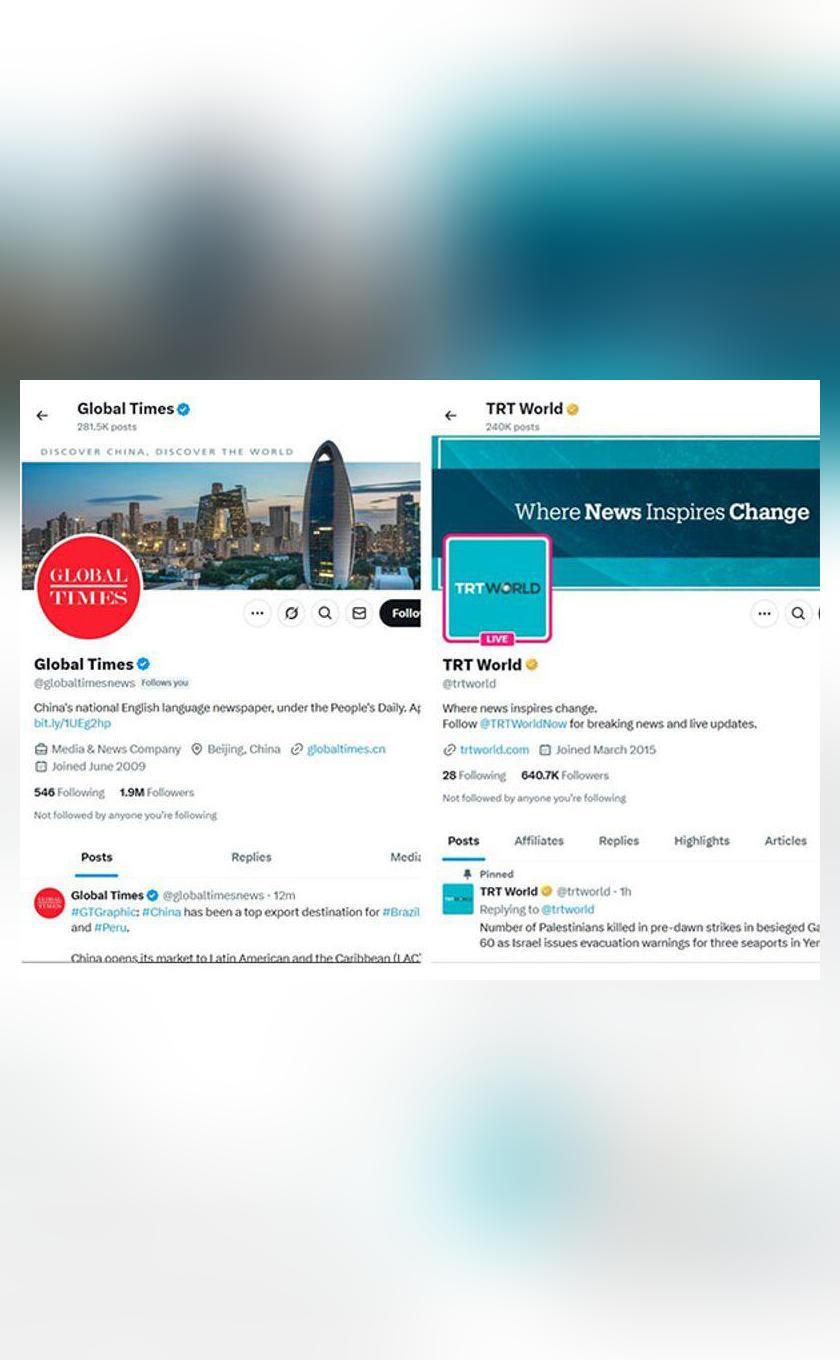
India Restores TRT and Global Times Accounts After Short-Lived Block
In a sudden turn of events, India has restored the official X (formerly Twitter) accounts of Turkey’s public broadcaster TRT World and the Chinese government’s Global Times after suspending them on Wednesday morning. This move comes at a time when Turkey and China have been accused of supporting Pakistan after India launched Operation Sindoor in response to the Pahalgam terror attack.
The development has sparked widespread interest, with many speculating about the reasons behind the sudden U-turn. The blockade was short-lived, lasting only a few hours before the accounts were reinstated. The restoration of the accounts has sent shockwaves across the globe, with many questioning the motivations behind India’s sudden change of heart.
For the uninitiated, TRT World is a Turkish public broadcaster that operates under the Turkish Radio and Television Corporation (TRT). The outlet is known for its news coverage, analysis, and opinion pieces on global events. Global Times, on the other hand, is a Chinese state-owned English-language newspaper that is known for its nationalistic and sometimes provocative editorials.
The suspension of the accounts came as a surprise to many, especially considering the growing tensions between India and Pakistan in the wake of the Pahalgam terror attack. The attack, which left several Indian soldiers dead, was claimed by Jaish-e-Mohammed, a Pakistan-based terrorist organization. In response to the attack, India launched Operation Sindoor, a military operation aimed at dismantling the terrorist infrastructure in Pakistan.
Turkey and China have been accused of supporting Pakistan in its confrontation with India. Turkey, in particular, has been vocal in its support for Pakistan, with Turkish President Recep Tayyip Erdogan offering his condolences to Pakistan’s Prime Minister Imran Khan after the Pahalgam attack.
The suspension of the TRT and Global Times accounts was seen as a move to counter Turkey and China’s perceived support for Pakistan. Many Indians took to social media to express their outrage, with some even calling for a boycott of Turkish and Chinese products. The move was seen as a way to assert India’s diplomatic muscle and show its displeasure at Turkey and China’s stance.
However, the sudden restoration of the accounts has left many wondering about the motivations behind India’s decision. Some speculate that India may have realized that the suspension of the accounts was not effective in achieving its desired outcome. Others believe that India may have received pressure from international partners or other stakeholders to restore the accounts.
Notably, several Indians have cancelled their trips to Turkey in the wake of the Pahalgam attack and subsequent tensions between India and Pakistan. The attack has also led to a renewed focus on India’s national security and its efforts to combat terrorism.
The suspension and subsequent restoration of the TRT and Global Times accounts has also raised questions about the role of social media in international diplomacy. The move has highlighted the importance of social media platforms in shaping public opinion and influencing diplomatic relations.
In conclusion, the suspension and restoration of the TRT and Global Times accounts is a significant development in the ongoing tensions between India and Pakistan. While the move was seen as a way to assert India’s diplomatic muscle, its sudden reversal has left many wondering about the motivations behind India’s decision. As the situation continues to unfold, it will be interesting to see how social media platforms play a role in shaping public opinion and influencing diplomatic relations.






